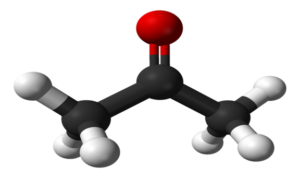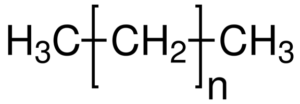Germanium may not be a household name, but it is a highly versatile element with diverse uses in different industries. From electronics to health supplements, this mineral has proved to be an invaluable resource in modern-day applications, offering a range of benefits that continue to be explored and expanded upon. In this section, we will delve into some of the most common uses of germanium and how it plays a vital role in today’s world.
Key Takeaways:
- Germanium is a versatile element with diverse uses in various industries.
- Germanium’s semiconducting properties make it useful in electronics components, such as transistors and rectifiers.
- Germanium-based photovoltaic cells offer high efficiency in converting sunlight into electricity, making them ideal for solar panels.
- Germanium lenses are an important component in infrared optics, such as thermal imaging and night vision technology.
- While marketed as a health supplement, further research is needed to understand all the potential health benefits of organic germanium compounds.
Germanium in Electronics
Germanium is a critical component in the world of electronics due to its superior semiconducting properties. It is regarded as a semiconductor material and is often used in electronic components such as germanium rectifiers and transistors. Interestingly, before the development of silicon-based transistors, germanium-based transistors were standard in use.

The unique capabilities of germanium make it attractive for use in electrical applications. It provides a natural bandgap that allows it to control the flow of electricity, making it an efficient alternative to silicon in certain circumstances. The superior conductivity of germanium makes it ideal for use in high-performance amplifiers and other electronic devices that demand speed. As a result, germanium is a crucial material in the manufacturing of electronics.
The development and continued use of germanium in electronic devices have allowed for the creation of smaller, more efficient, and more powerful electronics that have transformed daily life. As technology continues to evolve, germanium will undoubtedly play an essential role in the next generation of cutting-edge electronics.
Germanium in Solar Panels
Aside from electronics, germanium is also used in solar panel production. Photovoltaic cells, which convert sunlight into electricity, are made with germanium. These cells offer high efficiency rates and are a vital component in harnessing solar energy for power generation. Germanium’s properties of sunlight conversion make it a crucial ingredient in making solar power a viable source of renewable energy.
Germanium-based photovoltaic cells are known for their durability, stability, and high power density, making them ideal for large-scale solar power systems. They also perform better than traditional silicon-based cells in low-light settings.

Germanium’s ability to convert sunlight into energy efficiently makes it a valuable material in the production of solar panels. As renewable energy continues to gain attention and importance, germanium’s contribution to solar panel technology is becoming more significant and will continue to drive innovation in the field.
Germanium in Optics
Germanium is a highly useful element in the field of optics, as it provides excellent transmission properties for light in the infrared spectrum. Germanium lenses are particularly useful for thermal imaging and night vision technology, where light capture is crucial.
Infrared optics, which utilize germanium lenses, find a wide range of applications in various fields such as aerospace, military, and security. These optics enable the detection of heat emitted by objects, making them invaluable for use in thermal imaging cameras. Night vision technology also relies on infrared optics, allowing for clear vision in low light conditions.
Due to their unique properties, germanium lenses offer superior performance in infrared applications when compared to traditional optical materials. These lenses are widely used in various industries globally, including medical, automotive, and industrial.

Thermal Imaging Using Germanium Lenses
One of the most well-known uses of germanium lenses is in thermal imaging technology. This involves the use of infrared radiation to detect heat patterns in objects. Germanium lenses play a critical role in capturing infrared radiation and focusing it onto the image sensors, enabling thermal imaging cameras to detect and visualize heat patterns, as shown in the image.
Germanium in Health Supplements
Germanium is marketed as a health supplement with potential benefits for the immune system and overall wellness. Organic germanium compounds are believed to have antioxidant properties and may support the immune system. This mineral may stimulate the body’s natural defenses, resulting in enhanced immune system function. Research has also shown that germanium may help reduce inflammation, increase oxygen supply, and improve metabolic function, leading to better overall health.
While germanium has shown promising benefits, it’s essential to consult a healthcare professional before starting any new supplement regimen. Further research is needed to fully understand its effects on human health.

Other Uses of Germanium
Besides its main applications in electronics, solar panels, and health supplements, germanium has other uses as well.
Germanium is employed as a catalyst in certain chemical reactions, owing to its chemical properties. The use of germanium catalysts has increased in recent years with the growing demand for efficient chemical processes.
Fiber optics is another industry where germanium finds applications. Germanium is used in the production process of fiber optics, where it acts as a dopant, improving the overall performance of the fiber.
Germanium alloys are also used in specific applications, where the unique properties of germanium offer advantages. For example, germanium is used in the manufacturing of some types of transistors and diodes, as well as in the production of some types of glasses.
Overall, germanium’s diverse range of applications makes it a valuable and versatile element that continues to find new uses and innovations.




